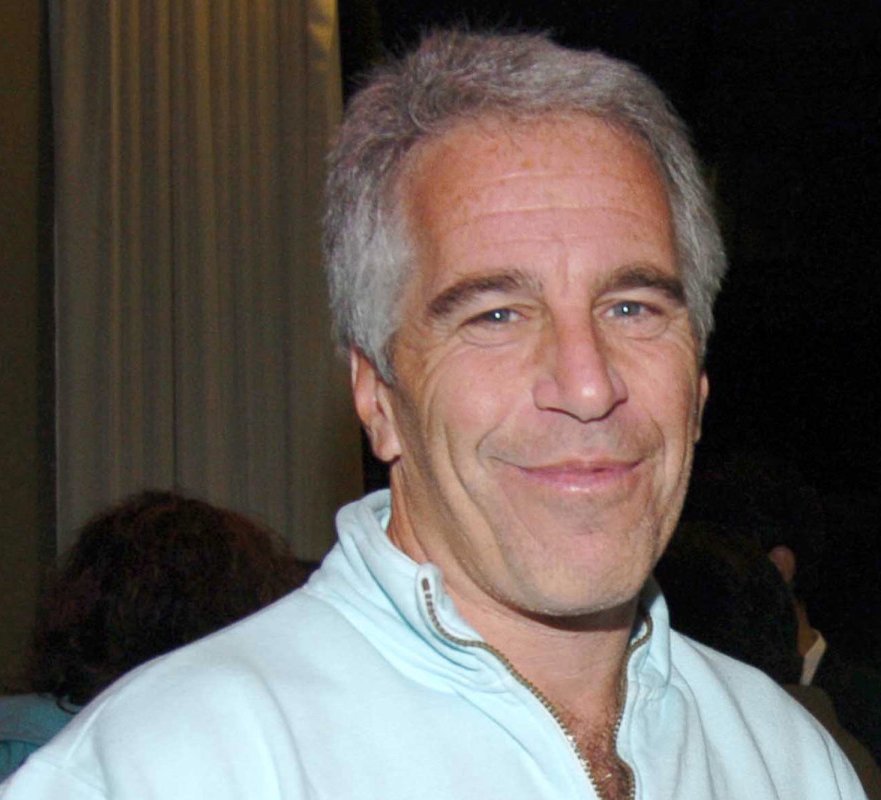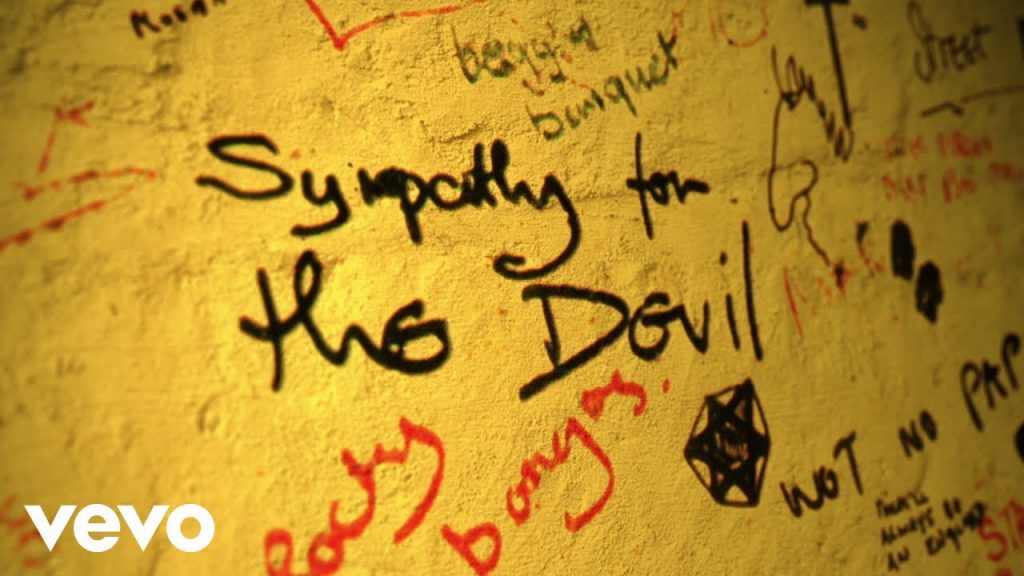
First posted Aug. 16, 2019. Revised and reposted Nov. 4. Good to read alongside “Why Be Moral.”
For a long time, the nature of evil eluded me. But dark contemplation of the Jeffrey Epstein case and of the very existence of pedophile rings has clarified the nature of evil for me. Here, then, is a brief and provisional theory.
Evil is contempt for the humanity, the human life, of others.
Evil is contempt for the humanity, the human life, of others. I will explain what I mean by this, but first let me clarify what, on this theory, evil is not.

First, evil is not contempt for this or that person; contempt can be deserved. Epstein himself richly deserves our contempt. But evil is something more far-reaching: it is contempt for the humanity of others. That qualifier is very important, as we will see.
Another thing evil is not is mere old-fashioned, curmudgeonly misanthropy. Misanthropes might claim to “hate everybody,” and they are very much distrusting, but they aren’t necessarily bad just for that. Most self-described misanthropes do not hate human life as such; they’re just deeply, profoundly disappointed with everyone. They have ideals that we fall far short of, and it is actually their unyielding principles that make them misanthropes. They are impressed with the idea that we are all sinners, so they have not given up the idea of sin. They do not reject the principle that we should value all human beings; they just believe that, due to the inevitable foibles of humanity, we cannot justify admiring or trusting anyone. Distrust and disappointment are not evil at all.

I have come to the conclusion that a proper understanding of evil—i.e., understanding the very idea of contempt for the humanity of some others—is profoundly important if you are to have a mature, clear-sighted view of your own life and of the world and its history. We might define naïveté as the failure to accept that anyone has such contempt. I have been rather naïve, in this sense, all my life. I have always liked Will Rogers’ charming sentiment that he never met a man he didn’t like. I have become increasingly impressed, over the years, by the Christian elevation of love, or agape, as a virtue—love for one’s fellow man. I thought it was something of a failing in myself that I disliked some people. One of the fictional characters I rather admired was Dostoyevsky’s Idiot, Prince Myshkin; his trusting nature, his unwillingness to accept the existence of evil, was his problem, too. I am coming to the conclusion that I myself have been rather idiotic about evil, and that has to end.

An evil person looks at another person and says: this is a non-person; this is a piece of trash; this is an obstacle or tool to be used and then discarded. Psychiatrists call such people sociopaths. A Kantian would say they treat others as mere means to their selfish ends, not as ends in themselves. That formulation is close, perhaps, but limited. After all, there is also a kind of nihilistic evil, which seeks to destroy pointlessly, due to the deepest contempt for a person, and hatred of their humanity as such—not to advance any further goal. Such dark, twisted, broken souls exist in real life, not just in horror stories.
With that long preamble finished, let me now explain what I mean by the key phrase “contempt for the humanity, the human life, of others.” How do I distinguish this from mere contempt of some disagreeable human feature? If the big bad boss sees that an employee does poor work, the big bad boss might look down on, or have contempt, for the employee, but it might be due only to poor work. The stereotypical mean girl in high school has contempt for “ugly girls” and “nerds,” but that might only be contempt for ugliness and nerdiness.
However nasty they can be, I don’t propose to call the boss or the mean girl positively evil unless they demonstrate contempt for something deeper: their target’s humanity.

So, what is that? I add “human life” as a clue: I mean contempt for the very life or existence of a person, not just for perceived weaknesses, faults, sins, or mistakes. This could entail careless disregard for a person’s mind or body, or both; it could entail active desire to harm without regard to ultimate consequences. Certainly this comes in degrees. Perhaps a bully who relentlessly teases is on the road to something like evil, if over time it becomes clear that the bully thinks of the person as merely a plaything for pleasurable torture. But most bullies have some regard for their victims: killing, for example, is out of the question. An accidental killing would inspire deep guilt in most of the world’s bullies, who are merely bad, not evil. Lack of a sense of guilt indicates positive evil.
But clearly, evil is not an all-or-nothing affair. There are degrees of evil because there are degrees not just in the scope of one’s contempt for humanity (as I will explain shortly), but also in the amount or strength of one’s contempt.
I take the latter to be a truism: some people are merely bad, some are inconsistently evil (for example, reformed), and some are “pieces of work.” The concept of a “piece of work” has long interested me. Perhaps it can be understood as a person who consistently has a mild amount of contempt for the interests of those who surround him, but who hides this contempt well. In any event, bad sorts have contempt for the basic humanity of others, contempt that waxes and wanes with their moods, their society, substances imbibed, and even their philosophy or religion.

But generally, I think that for us to call a person evil requires strong and consistent contempt for the humanity of others. By the way, whether a person actually acts on their contempt seems unimportant. An evil monster, locked away with no opportunity to work evil, is still an evil monster.
How should we understand the other key term, “contempt”? A brief gloss is “considering someone to be inferior or worthless.” It is typically regarded as an emotion, but there is a distinguishable attitude of contempt as well, one that could be cold and unfeeling, insofar as it merely involves a low evaluation of others. The attitude of contempt would be the contemplation of another person as being unimportant. Someone who regards some others with “nothing but contempt” will not credit them with rights, interests, or consideration typically accorded to (respected) peers.
But contempt for the humanity of others is a special sort of contempt. Note that we sometimes speak of dignity as a sort of “baseline value” that people have, in virtue simply of their being human. Contempt for the humanity of others, then, is the denial of their basic dignity. One who has such contempt denies his victim—deemed “scum” or “trash”—any rights, interests, or consideration.
Contempt for the humanity of others, then, is the denial of their basic dignity. One who has such contempt denies his victim—deemed “scum” or “trash”—any rights, interests, or consideration.

Evil is essentially dehumanization. If love of money is the root of all evil, that would be because it reduces human beings to commodities—which is to dehumanize them.
So far I have omitted to mention the varying scope, or target, of evil. Sometimes, the scope is quite narrow. A person obsessed with just one other person can have quite evil feelings and motives toward just that person. Perhaps this is how we should understand certain relationships that go terribly wrong. In addition, some criminals who are prone to outright evil may experience that type of contempt—for the humanity of their victims—on an individual basis. Two particularly evil crimes often directed at individuals are murder and child rape.
If evil can be manifested toward single individuals, can it be manifested toward families and small groups? Certainly it can. The motive of revenge may be understood as the utter rejection of the humanity of a person, well beyond a righteous demand for justice. When the revenge motive occurs to an extreme degree across families, clans, and gangs, we have a blood feud, which is sometimes regarded as a particularly dark sort of evil: members of opposing tribes regard each other as worthless vermin in need of extermination.

Widening the scope even further, racism is revealed as one of the varieties of evil: it involves the very destructive notion that there is no difference among all members of a race, that they are all equally undeserving of respect. It can be horrifically evil in its more extreme forms, in which contempt rises from lack of respect as a peer to positive desire to harm or exterminate some dehumanized vermin.
War crimes are a tremendous evil: they reveal profound contempt for the humanity of the enemy. War is a terrible plague, because success at the endeavor often seems to require that one dehumanize, or lose all respect for the humanity of, one’s enemy. By contrast, noble warriors have respect for their foes and refuse to treat their humanity with contempt. Perhaps that is an old-fashioned notion of war, but it seems the only defensible one. Good soldiers may have to participate in terrible, destructive battles, but they never sink to the level of war crimes because they retain a basic respect for the enemy’s humanity. I wonder: Is war psychologically devastating for very good people, unusually so, because it requires they kill people they respect?
Child rapists would have to have contempt for the minds and bodies of the most vulnerable human beings, for their basic humanity, to mistreat them so appallingly.

One very broad possible scope (21% of the U.S. population) is children. There are some people in the world—believe it or not—who have contempt for the humanity of children. They are the child rapists. They would have to have contempt for the minds and bodies of the most vulnerable human beings, for their basic humanity, to mistreat them so appallingly.
In the broadest scope, there is an evil, if thankfully small, movement afoot in the world. It appears to be hostile to human life as such, wherever it occurs. In lieu of a better word, which I couldn’t find, I invented one: antivitism (anti-life-ism). This is, I want to suggest, an evil movement, however organized or disorganized it might be. “After birth” abortion and active euthanasia of teens for depression are two examples: only those contemptuous of the value of human life as such could champion such things. Again, pedophilia advocacy is another example: the harm to children is so horrible and so obvious that it seems only contempt for humanity as such can explain the defense of it.
One strand of this movement does have a name: antinatalism. As a dictionary definition has it, this is “a philosophical position that opposes human procreation, holding it to be morally wrong.” More generally, antinatalists hold that human life is itself a tremendously bad thing, as they never tire of telling you.

Now, let me be fair: I don’t claim that antinatalists feel contempt toward their fellow humans. They certainly sympathize with human pain, which of course suggests decency. But anyone who takes such a theory seriously enough to act on it, I think, would have to be among the most inhuman monsters conceivable. If human life is on balance so awful, then the antinatalists would seem to be doing us all a favor by literally putting us out of our misery. This does raise an interesting theoretical challenge to my definition of evil: if antinatalists have contempt (as in, a very low estimation) for human life, but they do not in any obvious way have contempt for people, are they evil according to my definition?
My response to this is not to revise my definition of evil but to accuse antinatalists of incoherence. If they value human pain, then as a matter of fact they do value human life over human death, regardless of their protestations. Please, though, antinatalists, remain incoherent if you must remain antinatalists; please don’t start taking your contempt for human life to heart.
I accuse no one of evil of the broadest possible scope, for the simple reason that the accusation would be absolutely extraordinary, and extraordinary claims require extraordinary evidence. Perhaps some of history’s worst murderers were that evil—perhaps many. I would not rule that out.

So much for this brief discussion of the scope of evil. Next I want to maintain that it is of the utmost importance that we accept that evil actually exists. Naïve people have had too little experience with extreme evil to accept that it exists. They react with horror and incomprehension when confronted with it. I myself have willingly used the concept of evil (as in essays I linked to above about murder and child rape) but with some incredulity. I suppose I used it as shorthand for “extremely bad.” That’s not wrong, but it fails as a definition because it leaves out the essential feature of contempt for humanity.
The existence of evil is simply hard for some people to accept, and that is precisely because they can’t imagine anyone having such contempt for innocent life. It was only after wrestling with the Epstein case—only after confronting the increasing evidence from this case from my own lifetime, of monsters callously, deliberately, joyously violating innocence, demonstrating extreme contempt for the human life in their sway—that I was really able to believe it.
A modern impulse, which looks naïve, is to be highly suspicious of the concept of evil. Old-fashioned ideas of evil strike “sophisticated” people, sometimes, as mean, stupid, and insensitive. So they try to sympathetically “understand” evil, to explain it reductively in terms of vague, impersonal root causes rather than the unambiguous attitudes of specific, real people.

This modern notion that the concept of evil is somehow insensitive is highly pernicious, I believe. If we are not willing to name evil as such, we will understand evil motives badly, we will judge evil actions improperly, and we will punish evil crimes leniently. To deny that evil exists is to make it easier to be evil.
Indeed, in the last few generations—since in the mid-20th century—clinical, merely descriptive, sympathetic, and even celebratory depictions of evil have become the norm in Western culture. I will not here speculate on why this has been the case. I will say, however, that I believe this attitude to explain why crime rose in the same time period (until mass incarceration began), and why horrifically evil crimes seem to have proliferated and to have become ever more popular to this day.
This is a result of the moral abyss we find ourselves in—an echo from its depths, so to speak. If we fail to credit evil people fully with their inhuman motives, if we fail to contemplate head-on the tremendous destructive force of their contempt for humanity, then we allow evil to thrive. That is a fact, a very awful one. It should give us all pause.
If we fail to credit evil people fully with their inhuman motives, if we fail to contemplate head-on the tremendous destructive force of their contempt for humanity, then we allow evil to thrive.
We have been allowing evil to thrive. A good first step to stopping it is to re-examine the notion of evil and begin, once again, to name it for the unspeakable, but very real, horror that it is.
I leave you with a related thought.
What makes humanity loveable, and what inspires the most devotion toward heroes and leaders, is the capacity for creation, the ability to invent, build, preserve, and restore whatever is good, i.e., that which supports and delights flourishing, well-ordered life. What makes evil individuals worthy of our righteous anger is their capacity for destruction of the good, due to their contempt for human life as such.

If so, then the love for God may be understood as a perfectly natural love of the supremely creative force in the universe. For what could be greater than the creator of the universe, and what could be more loveable? And then it certainly makes sense that they would regard Satan as a force most worthy of our hatred and condemnation, since Satan is held to be an essentially destructive entity, the one most contemptuous of human life as such.
Leave a Reply